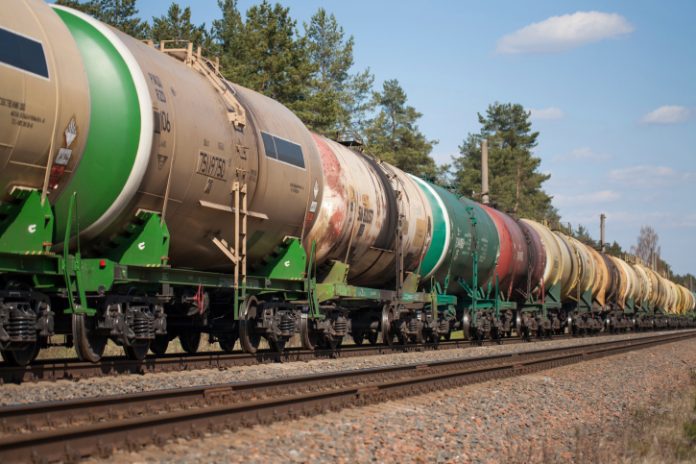The U.S. Surface Transportation Board [STB] approved an 88-mile rail line through seven Utah counties.
The December 16 decision green-lights the rail transport of crude oil and fracking sand across the route, potentially quadrupling oil production in Utah’s Uinta Basin.
A 12-mile portion of the railway will cross the Ashley National Forest, including roadless areas.
Because part of the railway crosses a national forest, the U.S. Forest Service [USFS] also had to approve a segment of the project. The USFS noted in its approval the railway will include bridges and three tunnels on NFS lands, but no roads in designated roadless areas.
The right of way will range from 100 feet to 2,100 feet wide, with the larger dimensions needed for tunnels, roughly paralleling U.S. Route 191.
Counties Push the Project
The Seven County Infrastructure Coalition (SCIC), which is backing the project, has estimated between three and 10 trains a day may use the single-track right of way, depending on future oil demand.
The permit allows other goods or commodities to be transported along the track as well, but in lesser amounts.
The STB’s approval was hailed by members of the SCIC who had long sought an affordable rail connection for the Uinta Basin’s waxy crude oil, which has until now been shipped entirely by truck, mainly to Utah refineries. The oil is too sticky for pipeline transport.
The SCIC has estimated the Uinta Basin Railway project will cost half the price of previously proposed routes.
Seven counties formed the SCIC back in 2014 to promote projects that bolster the region’s extractive industries. The Ute Indian Tribe, which relies on oil and gas revenues, may soon become an equity partner.
Greens Cry Foul
The Center for Biological Diversity (CBD) has been fighting the project and called the USFS’s approval “a massive blow to U.S. efforts to address the climate crisis.”
“The Forest Service’s support for the railway, which is intended to quadruple the production of crude oil and other fossil fuels, is entirely contrary to the Biden Administration’s Executive Order 14008 on climate change,” the CBD said in a press release. “This administration has no room for rogue agency actions.
“The administration needs to block this railway before it creates a massive surge in dirty oil production,” said the CBD.
The CBD’s claims are meritless, said Randy Moore, the Biden administration’s hand-picked director of the USFS, in a letter to CBD.
“The Forest Supervisor determined the proposed use of the project is in the public interest and supports President Joseph R. Biden’s policies outlined in Executive Order 14008 to rebuild our infrastructure for a sustainable economy,” Moore said. “The railway will bring economic growth to Utah’s rural, urban, and Tribal communities, as products move quicker and safer by railway than by tractor-trailers on a highway.”
‘Minimal Adverse Impacts’
Susan Eickhoff, forest supervisor for the Ashley National Forest, had previously issued a Record of Decision approving a 12-mile stretch within the forest to construct, operate, and maintain the proposed Uinta Basin Railway.
“The rationale for this decision is that proposed Project activities and facilities on National Forest System lands can be constructed and operated with minimal adverse impacts of concern to environmental resources and with minimal conflicts with Land and Resource Management Plan standards and guideline,” wrote Eickhoff in the Record of Decision. “The basis for this rationale is that the proposed Project would implement design features and follow best management practices and additional mitigation to avoid or reduce impacts to environmental resources.”
This was a good decision both for economic and environmental reasons, says Gary L. Stone, executive vice president of Engineering at Five States Energy.
“While in general pipelines are the safest way to transport crude oil, the topography of the region – high mountains, deep valleys, and a very limited number of potential routes – discourages pipeline construction,” said Stone. “The chemical composition of much of the crude in the area necessitates heating of the oil for movement, which would add greatly to the cost of a pipeline.
“Moreover, the multi-use nature of the railway – being able to ship frac sand and other supplies into the basin as well as crude out of the basin – makes the economic feasibility of the railway much better than a single-use pipeline,” Stone said.
Duggan Flanakin (dflanakin@gmail.com) writes from Austin, Texas.



























[…] post Federal Government Approves Oil Rail Line in Utah appeared first on Heartland Daily […]